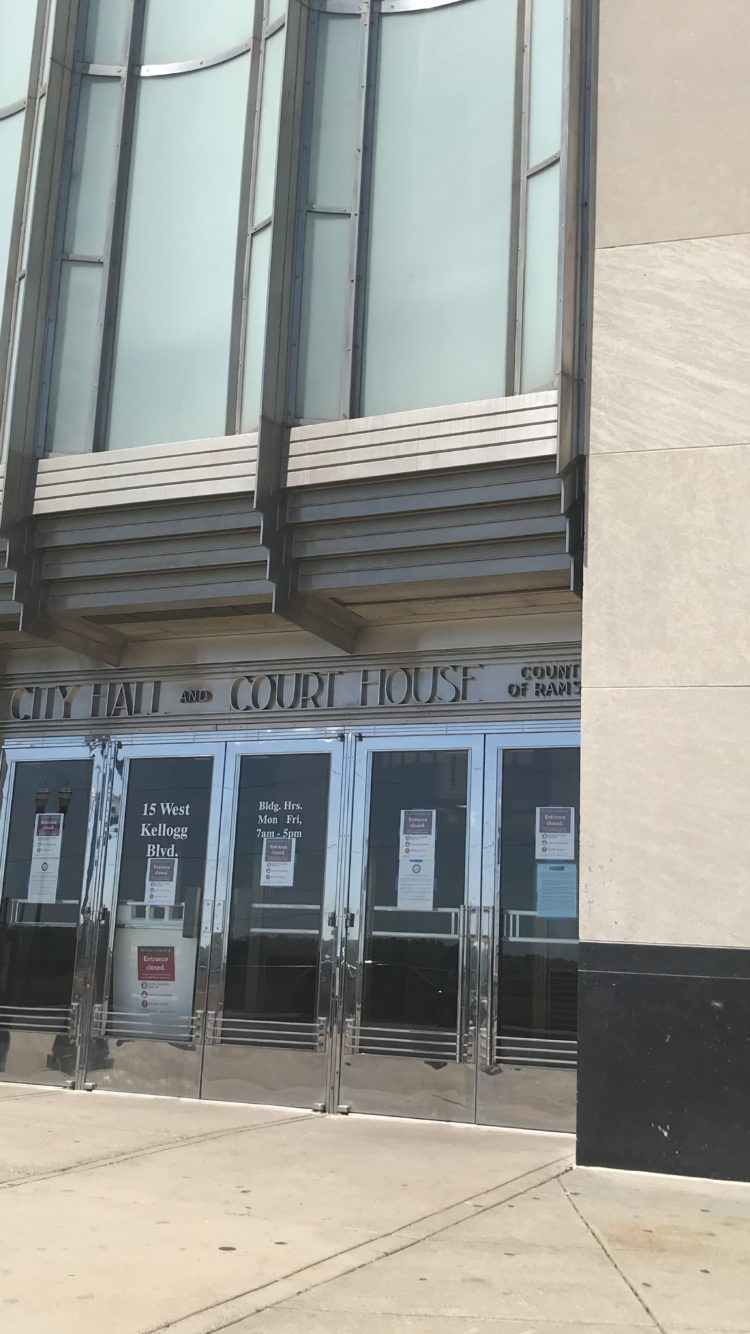Eviction destabilizes families and communities.
About 12,300 eviction actions were filed in the Twin Cities region in 2019. The vast majority of evictions are filed for nonpayment of rent, the result of extremely tight budgets with no room for an emergency. And while demographic information is not collected at court proceedings, the majority of eviction filings in the Twin Cities occur in low-income neighborhoods of color and disproportionately affect Black, Indigenous, and People of Color households.
Often, eviction puts families on a trajectory toward long-term housing instability, substandard housing quality, or homelessness. The very filing of an eviction action, even if it does not lead to immediate displacement, blemishes the record of those in the filing and makes it much harder to find decent rental housing the next time.
Everyone deserves a safe and stable home in a neighborhood of their choice. Simply put, we want to help families stay in their homes for longer. That’s why Family Housing Fund is working with a wide set of partners to establish a regional, coordinated eviction prevention system in the Twin Cities.
Watch: Teaming Up to Prevent Eviction in Minnesota
About the Ramsey County Housing Court Clinic
In 2017, FHFund and the McKnight Foundation convened a group of Ramsey County stakeholders over six months to identify opportunities to reduce evictions and increase housing stability. This group agreed to a series of action steps, and the Ramsey County Housing Court Clinic was launched in July 2018 to implement them.
The project implemented a number of court process changes, including:
- Adding information to the court summons about the legal process and the services available to tenants
- Amending the Court-issued settlement form to prompt parties to include an agreement to expunge the filing from the tenant’s record as part of the settlement agreement
- Allowing the affidavit of compliance – which asserts that all conditions of the settlement have been met – to be filed by the tenant in addition to the landlord. (Historically, the Court only accepted these forms from the landlord, who has little incentive to file them.)
Additionally, the Court has made on-site meeting space available to a Clinic of service providers who help tenants avoid eviction. Now, all Housing Court calendars are fully-staffed with:
- Lawyers who provide legal counsel for tenants
- Mediators who attempt to reach an agreement between the tenant and the landlord
- County emergency assistance workers who provide on-site screening for financial assistance
- Social service providers who work with EA workers to bundle financial assistance options and provide ongoing support to households encountered through the Clinic.
In the first 18 months of the Ramsey County Housing Court Clinic, Court statistics showed that eviction judgments had decreased by 18% and expungements per Court calendar had doubled.
Expansion to Anoka and Dakota Counties
With the success of the Ramsey County pilot, we began implementing this strategy with the Courts in Anoka and Dakota Counties. These three counties, in addition to Hennepin County, represent more than 90% of the evictions in the Twin Cities region. The Courts in Anoka and Dakota Counties have implemented many of the same process changes and launched their own versions of the Court-based Housing Clinics, condensing their housing-related calendars to facilitate the co-location of eviction prevention services. These Clinics launched just as the pandemic hit Minnesota and, like the Ramsey County Clinic, have been providing critical services to renters as eviction rates have spiked in the last year.
We hope to demonstrate that our problem-solving approach to eviction court cases is scalable for the entire region, and that lessons from this work can inform state and national approaches to eviction prevention.
How do we prevent evictions before Court?
Still, by the time tenants are defending against an eviction at Court, it is often too late to preserve the tenant-landlord relationship and the tenant’s housing situation. In many cases, a move-out, whether Court-ordered or as part of a settlement agreement, is hard to avoid. This is why we are working to create interventions earlier in the eviction process, before renters are summoned to Court.
We are working to resolve some of the root causes of eviction – such as lack of emergency funds, habitability concerns, and tenuous landlord-tenant relationships – ahead of eviction filings by:
- Expanding access to mediation services and increasing awareness of mediation as an alternative method to try before filing an eviction action
- Ensuring access to legal assistance to address problematic leasing practices and habitability concerns that can lead to our present as eviction
- Exploring opportunities to transform the social safety net so that it catches more people in crisis, including opportunities to improve emergency financial assistance programs
Learn more
- A Head Start for Eviction Prevention: Reaching Families Before They’re in a Housing Crisis (Urban Institute)
- Justice Served, Housing Preserved: The Ramsey County Housing Court Model (Mitchell Hamline Law Journal of Public Policy and Practice)
- Four Lessons from Minnesota Can Inform the Eviction Crisis Debate (Urban Institute via Housing Matters)
- Crisis Coordination and Eviction: Lessons from the Housing Court Clinic in Ramsey County, Minnesota (Urban Institute)
- Experts Forum: What’s the Best Way to Stem Evictions? (Minnesota Lawyer)
- How Can We Prevent Evictions? (McKnight Foundation)
- The Illusion of Choice: Evictions and Profit in North Minneapolis (Center for Urban and Regional Affairs)

